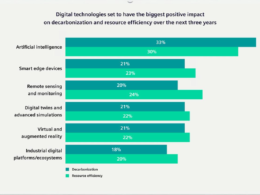The cooling market in developing economies is projected to grow from $300 billion to at least $600 billion annually by 2050, according to a new report by the UN Environment Programme (UNEP)-led Cool Coalition and International Finance Corporation (IFC). Africa and South Asia are expected to see the fastest growth, with Africa’s market increasing sevenfold and South Asia’s quadrupling.
The report, titled “Cooler Finance: Mobilizing Investment for the Developing World’s Sustainable Cooling Needs,” calls for a focus on sustainable cooling solutions that are energy-efficient, environmentally friendly, and economically viable. It highlights the urgent need for action as developing economies, currently responsible for two-thirds of global cooling-related emissions, are set to double their cooling demand by 2050 due to population growth, urbanisation, and economic expansion.
The report finds that sustainable cooling technologies could cut cooling-related emissions by nearly half by 2050 in these regions. Key strategies include prioritising passive cooling techniques, such as insulation, reflective materials, and increasing green spaces, alongside energy-efficient technologies. It also calls for stricter energy performance standards, new building codes, faster reductions of harmful refrigerants, and promoting innovation in cooling infrastructure.
“The sustainable cooling market represents at least a 600-billion-dollar opportunity for the private sector, which could generate more than 8 trillion dollars in benefits for developing countries. These nations are especially vulnerable to the deadly effects of rising temperatures and are urgently in need of cooling solutions. We are proud to present this report which describes the opportunity to invest in sustainable, affordable, and scalable cooling solutions, aiming for near-zero emissions by 2050,” said Makhtar Diop, IFC’s Managing Director.
However, the report stresses that closing existing gaps in access to cooling for households and small businesses in developing economies will require significant upfront investment, ranging between USD 400-800 billion, alongside additional investments to meet future demand.
“As record temperatures continue to be broken across the world, keeping cool is an essential need for both healthy communities and a healthy environment. However, we must avoid creating a vicious cycle of meeting cooling demands through solutions that further heat up the planet,” said Inger Andersen, Executive Director of UNEP.
Andersen added, “We need sustainable, affordable and energy efficient cooling solutions that both meet growing demand and support climate, health, food security, and economic development. Governments, private businesses, and multilateral banks can use this report to harness a wide range of financial instruments for sustainable cooling and resilience to extreme heat.”
The report also urges improving data on cooling, raising awareness, expanding business models and financing tools, increasing high-risk funding for pilot technologies, and leveraging blended finance. It further recommends building on the Global Cooling Pledge to create a Sustainable Cooling Finance Partnership.
UNEP and IFC committed to collaborating with governments, businesses, and stakeholders to create an enabling environment for sustainable cooling investments, ensuring accessible solutions for low-income regions that are most vulnerable to rising temperatures and extreme heatwaves.



















